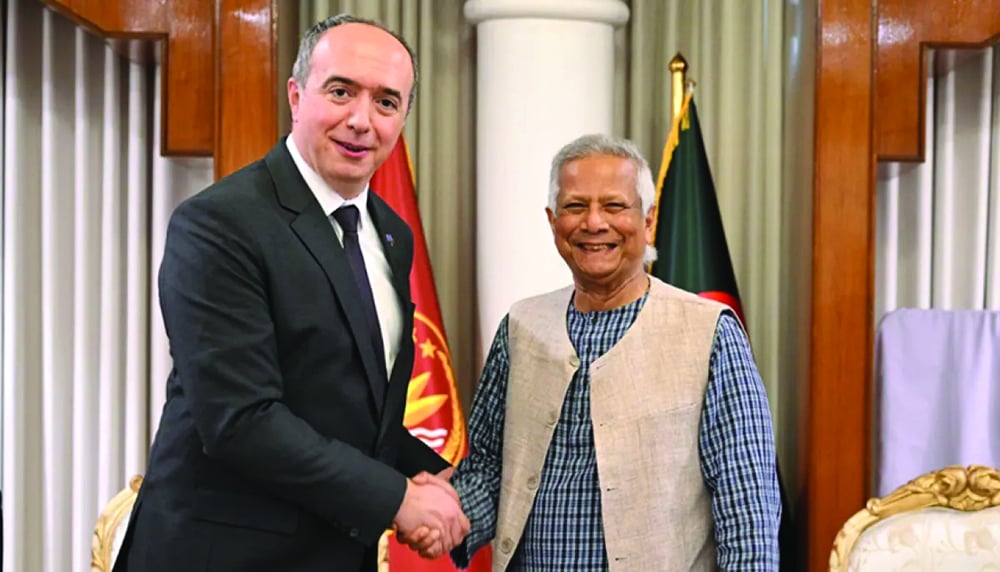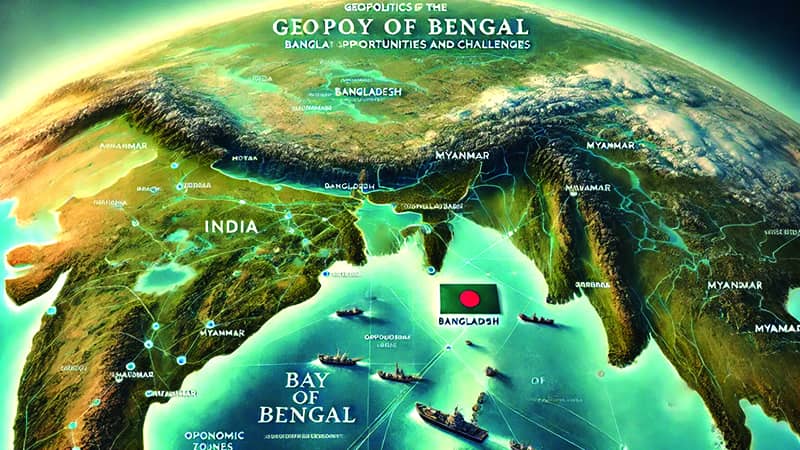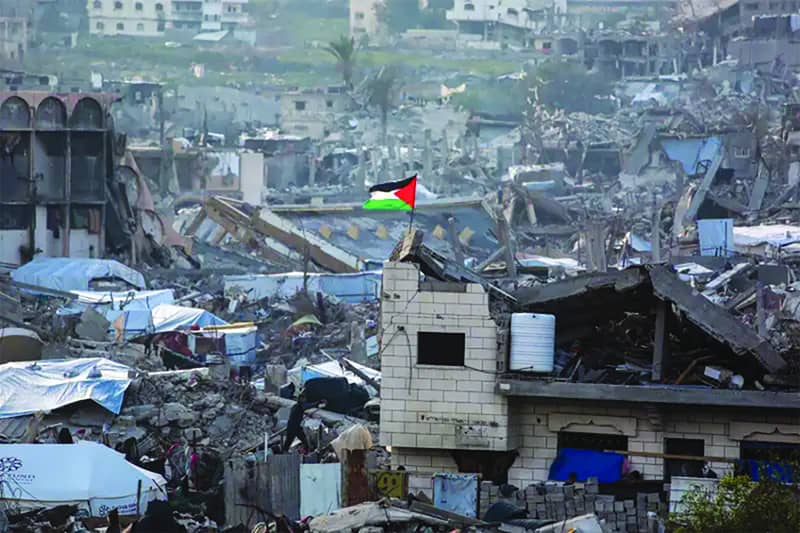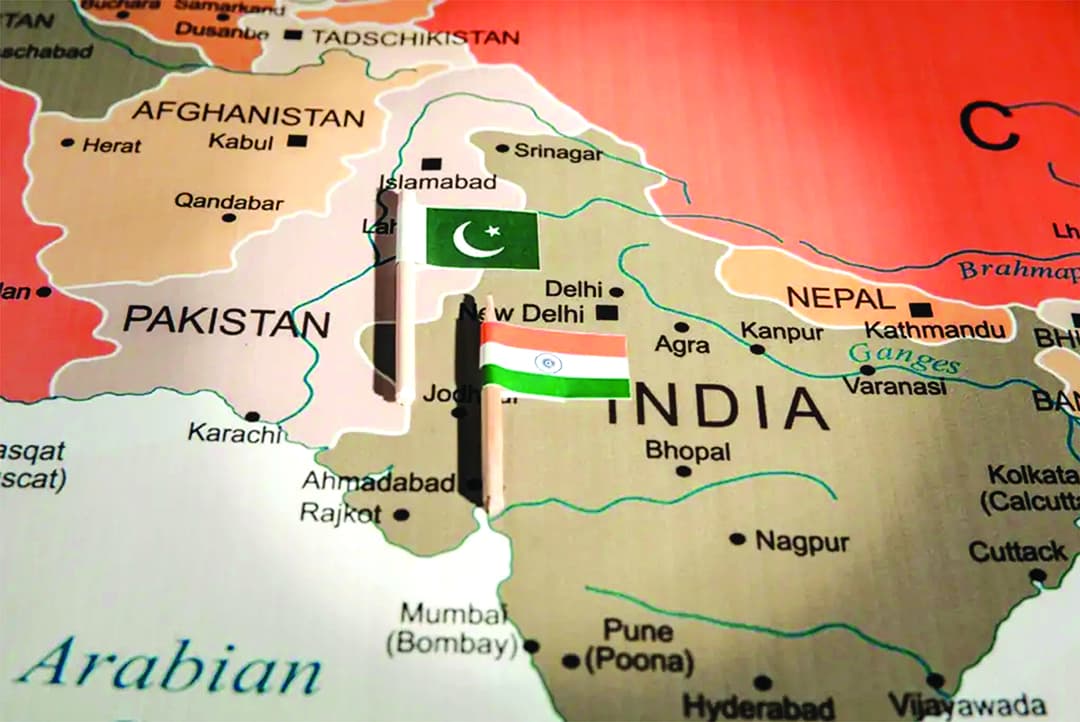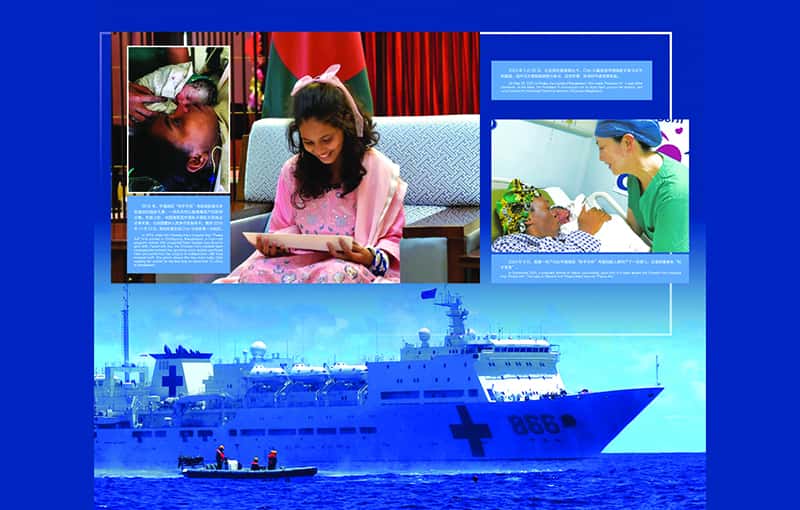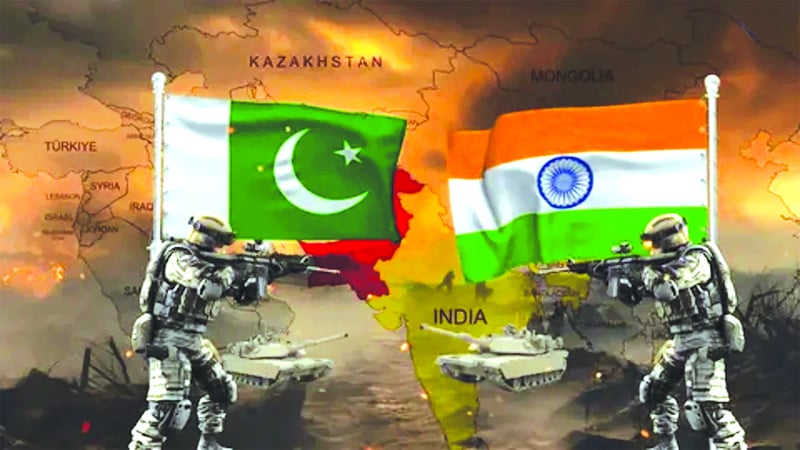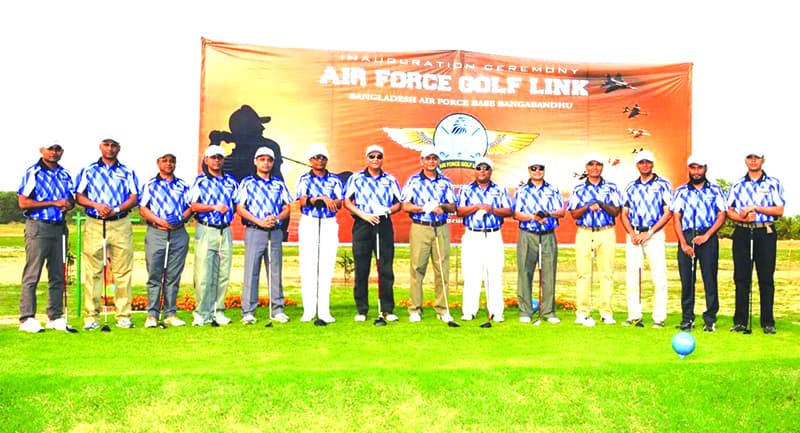Strengthening Bonds
Netherlands and Bangladesh in Key Partnerships for the Future
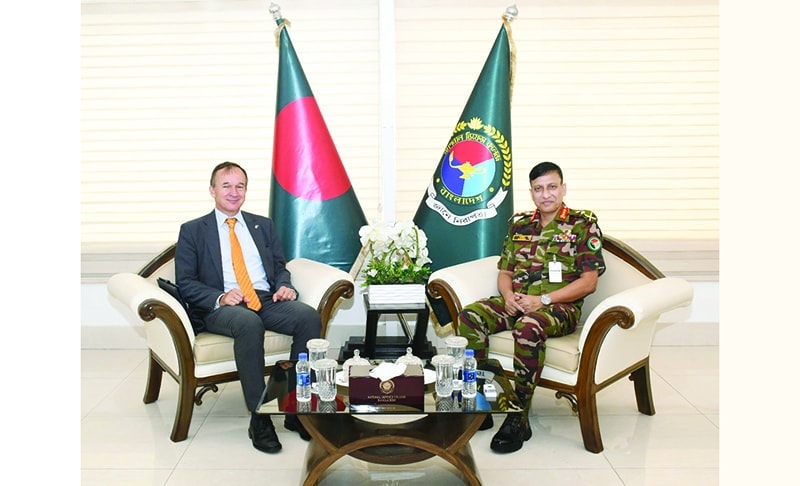
Rabb Majumder
Editor and Publisher of The Security World.
André Carstens, a d i s t i n g u i s h e d diplomat with extensive international experienc and a longstanding career in the foreign service of the Kingdom of the Netherlands. Currently serving as the Head of Mission at the Netherlands Embassy in Dhaka, Mr. Carstens brings a wealth of expertise garnered through his diverse postings around the world. His career spans over more than three decades, during which he has held pivotal positions including Ambassador to Kazakhstan and all other Central Asian countries as well as serving as Head of Mission in Kuala Lumpur, Moscow, and Rio de Janeiro. His diplomatic journey has also taken him to Brussels, where he advised the European Counter-Terrorism Coordinator, to Georgia and to Afghanistan, where he was involved in governance and security.
Mr. Carstens’ educational background includes a degree in
Business and Social-Economic Law from Utrecht University, complemented by
participation in the Senior Leadership Program of the Netherlands Public
Service. He is fluent in Dutch, French, English, Russian, and German; he exemplifies
the diplomatic finesse and cultural adaptability essential in his line of work.
A dedicated family man, he is married with three adult children. His extensive
experience, strategic insight, and commitment to fostering international
relations coincide with core qualities of both classic and modern,
multidimensional diplomacy. In this interview he shares his insights on the
Netherlands diplomatic priorities, bilateral relations with Bangladesh and the
broader challenge and opportunities facing international diplomacy today.
The following is an excerpt from the interview:
How would you describe the current state of bilateral
relations between the Netherlands and Bangladesh?
In one word: excellent! Ever since Bangladesh’s independence
struggle, the Netherlands sees your country as a committed partner in an
important region. Our two countries have more in common than one might think:
both are low an mostly flat countries in roaring river deltas, with enormous
coastal, maritime environments and endless water bodies everywhere. Besides,
‘Netherlands’ means ‘low lands’ with its highest ‘mountain’ rising to just 322
meters, while one-third of the country lies below sea level.
Most significant achievements in our bilateral relations in
recent years?
In relation to the point I just mentioned, I like to
highlight the launch of the Bangladesh Deltaplan 2100, which we inspired and to
which we contributed significantly. BDP 2100 is the 100-year masterplan for
water security, adaptation to climate change, promote economic growth, reduce
disaster risks - like floods and droughts - and improve livelihoods and
resilience, especially in vulnerable delta regions. By providing technical
assistance, capacity building and by exchanging knowledge and expertise we
support Bangladesh making itself future proof in the long run!
What areas do you see as having the greatest potential for
growth in our bilateral relationship?
Early 1972, the Netherlands was among the first countries to
recognize Bangladesh’s independence. Now that 5 August last year Bangladesh
created momentum for democracy and real independence, the Netherlands fully
supports the ambitions of the Interim Government to stabilize the country for
the sake of its people, their welfare and wellbeing, and to prepare for free,
fair and inclusive elections next year. Obviously, Prof. Dr. Yunus in his
capacity of Chief Adviser is playing a key role in this process. Besides our
bilateral water cooperation, we cooperate more and more in food and
agriculture, in the (sustainable) garment sector and in more specific fields
such as peace keeping operations.
How has trade between the Netherlands and Bangladesh evolved
over the past few years? What are the main exports and imports?
Evolution of Trade:
Trade between Bangladesh and the Netherlands is flourishing.
For example in 2022, Bangladesh’s exports to the Netherlands reached € 1.8
billion, while imports from the Netherlands to Bangladesh stayed more or less
stable at € 717 million. This resulted in a trade balance of more than € 1.1
billion in favor of Bangladesh, indicating that more Bangladeshi goods are
flowing into the Netherlands than ever before.
Main Exports from Bangladesh to the Netherlands:
The top five exports from Bangladesh to the Netherlands are:
Garment & Apparel: Bangladesh leads in exporting
textiles and clothing to the Netherlands, from t-shirts to suits and fashion,
supplying over 60% of all garment imports into our country. Notably, Bangladesh
exported over €1.53 billion worth of readymade clothing to the Netherlands in
2022.
Footwear: Bangladesh is a major exporter of footwear,
supplying various types of shoes as the second top exporter to the Netherlands.
Fish & Seafood: Bangladesh exports fish, crustaceans to
the Netherlands; for example 60% of all shrimp exports to Europe are being
shipped to the Netherlands.
Yarns & Fabrics: Bangladesh exports high-quality yarns
and fabrics, crucial for clothing, ranking fourth among top exporters to the
Netherlands.
Travel Items & Handbags: Bangladesh produces stylish
travel items and handbags, ranking fifth in exports to the Netherlands.
Main Imports from the Netherlands to Bangladesh:
Nearly 95% of the total imports from the Netherlands to
Bangladesh was used for the import of our potato seeds. Rightfully so, as they
are top quality!
What sectors in Bangladesh do you believe offer the most
promising opportunities for Netherlands’ investors?
Bangladesh is growing fast, and the country is really keen
on welcoming foreign investments. This offers a perfect match to the Netherlands,
having a host of world-class know-how in various areas. When expertise is
brought together with needs, promising partnerships will emerge from which both
the Netherlands’ and Bangladesh’ side will benefit. I very much believe in such
opportunities, in particular in the following sectors:
Sustainable Agriculture and Food Security:
Horticulture: the Netherlands, a global leader in advanced
horticulture and greenhouse technology, is well-positioned to transfer this
cutting-edge expertise to Bangladesh. This creates significant investment
opportunities in developing modern, climate-controlled farming environments,
promoting high-value crop cultivation, and enhancing year-round agricultural
productivity through sustainable greenhouse solutions and innovative
horticultural practices.
Sustainable Agriculture: the Netherlands is keen to share
knowledge and expertise to accelerate sustainable food production, offering
broader opportunities across the agricultural value chain, including advanced
technologies and best practices for sustainable farming.
Cold Chain Facilities and Logistics: while currently around
40% of all agricultural products are ending up spoiled or wasted, cold chain
facilities and proper transportation can drastically reduce this figure; also
they can contribute to the stabilization of the currently volatile price
fluctuations.
Potatoes: Bangladesh is the 7th largest potato producing country on a global scale, while 95% of all potato seeds it imports originate from the Netherlands. This highlights a strong existing link and potential for further investment in potato production, processing, and value chain development.
The Netherlands has an array of landmarks to see, including many in Amsterdam. Photo: Destguides
Onions: the Netherlands is investing in onion value chain
cluster projects to minimize post-harvest spoilage and ensure year-round
supply, indicating opportunities in agricultural infrastructure, storage and
processing.
Seed Sector: over a third of all vegetable seed trade on
earth is coming from the Netherlands; in this context we have set up a
partnership with Bangladesh to enhance its seed sector, offering clear
investment opportunities for further strengthening and modernizing Bangladesh’s
seed production.
Water and Maritime Sector:
Water Management & Delta Development: with
Bangladesh’s Delta Plan 2100 in place and 20% of its investments
coming from the private sector, I see significant opportunities for
Netherlands’ expertise in water management, flood protection and dredging.
Nature-Based Solutions: the shift towards climate resilient
and nature-based solutions for river and delta management also opens new
avenues for investment.
Port Efficiency: given the Netherlands’ maritime tradition
and expertise, boosting port efficiency, including dredging and improving trade
logistics, is a key area for strategic investments.
RMG and Textile:
Sustainable Practices: investments in decent workplaces, in
traceability and in circular and sustainable production, eco-friendly processes
and ethical sourcing within Bangladesh’s RMG sector fit perfectly well in the
Netherlands’ demand for traceable garments produced in such models. Initiatives
like PACT (Partnership for Cleaner Textiles) and “Better Work Program”
highlight a growing demand for these investments.
Fire and Building Safety: continued support and investment
in improving factory safety standards, aligning with international agreements
like the Accord (now RSC), remains important.
Healthcare and Pharmaceuticals: Netherlands has a
longstanding footprint in Bangladesh’s healthcare sector through Phillips and
engagement with the HNSP for decades. Our expertise in healthcare,
digitalization, med-tech and API knowhow offers great potential for more and
deeper cooperation in healthcare and in the pharmaceutical industry.
Technology and Innovation: similarly, our role as a global innovation leader in semiconductors, Med-Tec, IT, ITES, connecting businesses and building markets, implies opportunities for technology transfer and investment in advanced technologies across corresponding sectors in Bangladesh.
AndreCarstens,
after running Dhaka’s Metro Half Marathon (21k) on 9th July 2025. Photo: Sharif
Ul Islam
What challenges do you foresee in enhancing economic
cooperation between our two countries?
While our partnership is solid, there are some challenges,
keeping us sharp: Bureaucratic Hurdles: navigating the regulatory landscape
investors lose appetite due to elaborate bureaucratic processes in Bangladesh.
Despite government efforts to improve the business climate, inconsistencies in
policy implementation and lengthy approval procedures can deter investments.
Streamlining processes, enhancing inter-ministerial coordination and greater transparency will
definitely result in more foreign direct investments. Ease of Doing Business:
government branches, such as the Bangladesh Investment Development Authority
(BIDA), are working hard on initiatives like the ‘One Stop Service’ (OSS)
portal, designed to fast-track investment approvals by integrating various
government services under a single window. BIDA summits and various
interministerial dialogues also help to identify bottlenecks and to accelerate
investments and FDI inflows. These proactive steps demonstrate a clear
commitment to creating a more investor friendly environment, which obviously
will uplift Bangladesh’ position at the famous ‘ease of doing business’ index.
Global Economic Fluctuations: external economic factors,
such as commodity price volatility, and economic downturns in (sometimes
unpredictable) global markets as well as geopolitical shifts can derail
consistent growth and stable economic cooperation. Likewise, these elements can
influence trade volumes and investment flows between the two countries.
Maintaining Sustainable Practices: while both countries are
deeply committed to sustainability, ensuring the widespread adoption and
consistent enforcement of sustainable and ethical practices across industries
in Bangladesh, particularly in the crucial Ready-Made Garment (RMG) sector,
remains an ongoing challenge. This is especially pertinent as Bangladesh
progresses towards middle-income graduation. This graduation is expected to
enhance scrutiny from international markets regarding compliance with
environmental, social, and governance (ESG) standards and potentially alter
preferential trade agreements. We are used to high benchmarks, thanks to our
strong regulatory framework for corporate social responsibility and our
commitment to circular economy principles. Harmonizing Bangladeshi industrial
practices with European due diligence directives and other evolving
international regulations requires sustained efforts and significant
investments in green technologies, improved labor conditions, and continuous
monitoring to meet global standards and consumer expectations for responsible
production.
How do cultural exchanges play a role in strengthening ties
between the Netherlands and Bangladesh?
Cultural exchanges play a vital role in the Netherlands’
engagement with Bangladesh, fostering mutual understanding between different
people and cultures. Over the years, we have launched various cultural
initiatives aimed at promoting young artists and raising awareness of art from
the Netherlands in Bangladesh. A recent example is the Delft Blue ceramic
exhibition organized in partnership with Dhaka University. Earlier this year,
we invited the renowned artists Rini Hurkmans and art curator Marja Bloem to
lead a workshop in collaboration with the same university, where students
actively participated in creating artwork across various art departments. If
you look at the wall of our Embassy, you will see it filled with artworks
reflecting the themes we focus on in Bangladesh. All these paintings were created
by female artists as part of our ongoing efforts to empower women.
What initiatives are in place to promote Dutch culture in
Bangladesh and vice versa?
Despite financial constraints due to ongoing budget cuts by
our government, we remain active in the cultural sector by participating in
various cultural activities. One of our newly started initiatives is to allow
emerging artists to organize an exhibition of their works at the Netherlands’
Residence. Thus far, three exhibitions have been successfully held, and a
fourth is about to be inaugurated. We hope to continue our efforts in this
area.
How can the youth of both countries be encouraged to engage
in cultural and educational exchanges?
There are currently 1.8 billion young people in the world –
the highest number ever. It’s projected that by 2030, there will be at least
two billion young people seeking work and other opportunities for creating a
bright future for themselves and their environment. To keep pace with this
youthful world, the Netherlands is increasingly putting youth at the heart of
its development policies. NL is investing in education and youth employment and
aims to work on improving prospects for young people through a distinctive
approach that bridges the gap between the skills young people learn and what
the labor market demands.
Cultural exchange and youth mobility play a pivotal role in
fostering understanding and collaboration among diverse communities across the
globe. These initiatives provide young individuals with the opportunity to
immerse themselves in different cultures, enhancing their global perspective
and promoting mutual respect. By participating in these programs, youth not
only gain valuable life experiences but also develop skills that are essential
in today’s interconnected world. To foster cultural and educational exchanges
between youth in the Netherlands and Bangladesh, there is a need for structured
programs, digital platforms and partnerships between organizations. Focusing on
diverse participation, engaging activities and accessible funding will help to
create meaningful experiences.
In addition, the Netherlands contributes to youth leadership
development programs (BYLC) in Bangladesh, to the youth entrepreneurs’
incubation center and challenge funds (Orange Corner by YY Ventures) for
sustainable solution of national and global problems etc. and to the market
oriented skill development program for RMG workers (Swiss Contact). Also we
have specific programs involving youth and media to address negative gender norms
which instigate gender based violence. Our various programs are supporting the
participation of young women in STEM career, addressing dis- and
misinformation, supporting youth’ vigilance online, promote female political
and social leaderships, promoting youth networks and creating alliances
including in the climate change arena.
Youth @ Heart Strategy:
The NL Youth at Heart Strategy is a youth-led virtual forum.
Its principles are a call to action for governments, civil society, private and
public sector, bi- and multilaterals and knowledge institutionsto invest in the
prospects of young people so that– together with these young people themselves-
they can build a better, more resilient world. These principles call upon
organizations to recognize and invest in an inclusive manner and specifically
in the opportunities of vulnerable youth, recognizing the unique challenges
they face and ensuring that no-one is left behind.
Nuffic:
For 70 years Nuffic has been the Netherlands’ organization
for internationalization in education. Its programs support foreign students to
vocational and higher education, research and adult education. Also it helps
students to prepare themselves for the labor market and other challenges of our
time. Nuffic serves as a starting point for students considering our country as
a study destination e.g. via the Orange Knowledge Programme (OKP) or Erasmus+.
In addition, Nuffic organizes knowledge sharing sessions about current trends
and developments with all sectors of education.







